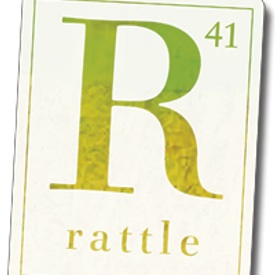
I hope that at least one or two of you noticed I haven’t been present for the last four weeks; that time was largely taken up with family business, involving a trip to Missouri and back by auto, plus a week for recovery. (Although I ate sensibly and, in fact, lost 15 pounds on the trip, I somehow strained my lower back muscles and became anemic on top of that, so it sure hasn’t been fun and games.) About the only really notable thing about our several-thousand-mile round trip was that our return coincided with the end of the 75th annual Sturgis motorcycle run, so on the way past South Dakota and associated states on Route I-90W, we saw literally thousands of (mostly) Harleys. But also lots of trikes and sidecars and support vehicles. Having once or twice gone a couple of thousand miles on motorcycles myself, I somewhat wistfully thought it might have been nice and fun to do maybe 35 or 40 years ago, but I’m older and, I hope, wiser today. The half-dozen or so motorcyclists I talked to while gassing up unanimously gave the run an enthusiastic thumbs-up, both male and female. But one of the things age grants you is the opportunity to not do fun and uncomfortable things just to be cool!
One of the interesting things we saw while driving—and this trip our time was limited, so no sightseeing except while driving—were the dozens of eagle-nest poles in various states, like Montana. All but one that we saw were inhabited—and we could see some pretty sizable chicks in most nests! Alas! We had to drive, and drive we must. Or did. It was also interesting to leave the arid lands of British Columbia and the Pacific Northwest and move into the lusher, greener lands of the midwest. Where we are used to seeing green at home and yellow in, say, South Dakota, the situation has been reversed of lately; Vancouver has been under severe water restriction for some time, and lawns are noticeably yellower. And Missouri’s humidity came as somewhat of a shock to our systems, too… sometimes it felt like we needed aqualungs to breathe! Oh, well, as Monty Python says: “It’s all a part of growing up and being British!” (If you don’t get that, don’t worry. I’m a master of the non sequitur.) But sore back, anemia, yellow grass and all, it’s great to be home. Except that I find that many of you have packed up and moved to Spokane for the week!
Moving on, I find that review books have been piling up in my absence; and one in particular needed to be read and reviewed, as it was published on the 18th of August! I refer to Dave Duncan’s Irona 700, from Open Road Media (available from Amazon.com and Amazon.ca—the Kindle version’s about $6 and the paperback is about $13—as well as your usual brick-and-mortar outlets). I do try to time my reviews to openings of films and publication dates, but sometimes it just doesn’t happen. Fortuitously, it did this time.

I first encountered Dave Duncan’s writing back in 1988 when I got hold of a copy of The Reluctant Swordsman, the first book in his “Seventh Sword” series, from Del Rey books, with a quite greenish cover by Darrell Sweet. It was a different kind of fantasy, where a man from our current-time Earth wakes up in a fantasy world ruled by gods, and has to learn not only about who he is—because he isn’t who he used to be!—and the rules and mores of his new world. The series has a surprise ending (minor spoiler) where the hero of the series turns out to be not who you’ve been assuming he is all along; this surprise twist continues (well, not this exact twist) to be a factor in many of Duncan’s future novels. (At this point—he’s about 82 years old now, and sure doesn’t look it!—he’s written something like 50 novels, both fantasy and science fiction, and he appears to be equally at home in both genres.) (ALL his books are available; see his website at www.daveduncan.com.)
So I started watching out for Duncan books; by that time, anyway, I’d moved to Canada and lo and behold, he began appearing at various Canadian cons I was attending. At the time, he was living in Calgary, and I was living in Edmonton, so I saw him—and his wife, Janet, a wonderful person with a very acerbic sense of humour—at one or two cons a year, and we became friends; enough that we’d have a meal or a cup of coffee or cheer of some kind at each con. My next acquisition of a killer series was the “Man of his Word” series; a fantasy series where words have actual consequences. I continued to be a fan, right through his “King’s Blades” series, where swordsmen in a fantasy word swear to be the guardians of the king and are tied to him magically in a ceremony that involves plunging a sword through their actual, physical hearts! Dave never seems to do the expected in a book, and even if he didn’t construct a complete fantasy world every book or series—which he really does!—you’d be drawn into the worlds and the characters.
(By the way, in case you’re interested, ARCs, or Advance Reading Copies, don’t always have the cover shown on the actual book. The below illustration is of the ARC cover for the epub of Irona 700.)

So here we are at a new book; could be a standalone, as many—if not most—of the book’s threads are tied up at the end; I won’t guess as to whether there will be a sequel. Irona 700 is set in a vaguely Hellenic fantasy world; according to the maps included in the book, the main civilization of Benign appears to be set in an extinct volcanic caldera. The 700 in the title refers to the year 700 of this particular civilization, which comprises a dozen communities spread around the arms of this caldera—with a very large bowl of water in the centre and only a few openings opposite the Mountain, which dominates the area over The Temple, where the rulers of Benign live. According to the text, the culture is ruled by the “Seventy and the Seven,” overlooked by the First. They worship several gods: Caprice (blind goddess of chance, who rules Benign); Maleficence—god of pure evil; Craver, god of lust, greed and desire; and Bane—god of the death curse. It is midsummer, whence all 16-year-olds (those born in 684) come to the temple to become citizens or Chosen of Caprice. The customary dress of Benign is the smock; it can be something as simple as a square of burlap with holes for head and arms—arms are always left bare, because slaves and criminals are branded on the arms—or more elaborate and costly fabrics. Attendance at the midsummer festival is mandatory; any 16-year-old not attending (and there are lots of spies to ensure compliance) will have his or her parents stripped naked and publicly whipped.
Irona is one such 16-year-old; she doesn’t really want to attend the ceremony, as her boyfriend Sklom, a harpoonist with very muscular arms, is going to take her to the regatta and kiss her, but her father, a brutal fisherman with a crew of twelve, tells her she will go or be whipped for it. She feels it’s a waste of time, as Caprice has never chosen anyone from the outlying district of Brackish, where she’s from. Besides, Sklom says “the Seventy are a gang of thieves tyrants, making honest working people pay taxes so they can be rich and own slaves and palaces.” But she goes to the Temple and—surprise!—Caprice chooses her. And thus begins her life as one of the Chosen.
To begin the actual review part, let me say that I like Dave’s writing a lot; it’s extremely vivid to me, and I really like his world building skills. This book hands-down beats much of the fantasy published these days. Over a period of several decades, we see Irona’s gradual development into one of the ruling Seven, and her accomplishments at political intrigue. Since Chosen are forbidden to marry, we see her with consorts such as Vly, who gave her a son, Podakan, and the artist Veer. We watch her command great fleets to do battle with various other kingdoms. Plotwise, we see an arc in Irona’s life, and that is good.

What is less good is that the plot is rather scattered; some of the writing seems less vivid than Duncan’s usual in that we have a bunch of telling us of events rather than showing; the older Irona seems prone to fainting and falling at certain key events—no spoilers at this point—she awakes to find that things have happened while she was out. Great and/or terrible things—but we’re not there to see them. And the surprise twist I waited for all through this book never happened. Which is, to me, disappointing. Don’t get me wrong, the book is good fantasy. And compelling in its own way, but it’s only competent; it’s not great fantasy, which is kind of what I had expected. Not every writer can fire on all cylinders every time, but I feel a bit let down. And I have to say that the timing on the gods’ names is bad–Maleficence brings Angelina Jolie to mind, every time I see the name; and Bane brings the recently-concluded Batman series (Tom Hardy) to mind. So there’s a bit of cognitive dissonance interfering with enjoyment, too. So I enjoyed it, with reservations.
Which means I’d recommend this book, but with reservations; I’d say to read this, then quickly jump to—if you’ve never read—one of the aforementioned series by Dave, or even another of the fifty or so books he’s written, just to remind yourself that you’re reading a damned good writer. If I give it an Amazon review, I probably won’t award it more than three and a half stars out of five. And in case you’re wondering, because of a rape scene and a few other things, I don’t really recommend it for younger readers.
Please comment on this week’s column. If you haven’t already registered—it’s free, and just takes a moment—go ahead and register and comment here, or comment on my Facebook page, or in the several Facebook groups where I publish a link to this column. I might not agree with your comments, but they’re all welcome. Don’t feel you have to agree with me to post a comment, by the way—I’m always ready to entertain another viewpoint. My opinion is, as always, my own, and doesn’t necessarily reflect the views of Amazing Stories or its owners, editors, publishers or other bloggers. See you next week!
Steve has been an active fan since the 1970s, when he founded the Palouse Empire Science Fiction Association and the more-or-less late MosCon in Pullman, WA and Moscow, ID, though he started reading SF/F in the early-to-mid 1950s, when he was just a sprat. He moved to Canada in 1985 and quickly became involved with Canadian cons, including ConText (’89 and ’81) and VCON. He’s published a couple of books and a number of short stories, and has collaborated with his two-time Aurora-winning wife Lynne Taylor Fahnestalk on a number of art projects. As of this writing he’s the proofreader for R. Graeme Cameron’s Polar Borealis and Polar Starlight publications. He’s been writing for Amazing Stories off and on since the early 1980s. His column can be found on Amazing Stories most Fridays.









